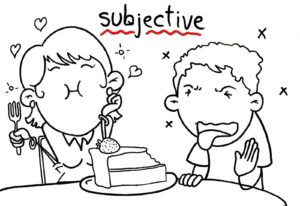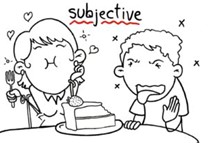Upon referral of a vocational case, I review a variety of medical data, for example, treating physician reports, functional capacity evaluations, independent medical evaluations and if available psychological data like psychometric testing, psychological evaluations, and psychiatric evaluations found within the file.
During a litigated claim that involves work and disability, it’s important for me to understand the individual’s medical situation based on the data contained in these records.
Good thing I’ve had medical records training and enjoy the review!
If a file contains more than one FCE and/or IME, I can expect the reports to have conflicting opinions. For example, one physical therapist will recommend the claimant has the physical capacity for light work, while the other physical therapist says medium work. Often the therapists also have conflicting information about the individual’s maximal or lack of effort put forth during the evaluation.
The claimant needs to honestly and sincerely say “I Did My Best!”
Assisting the individual (who can be referred to as the injured worker, the claimant, the patient, the testee, the evaluee, and potentially the client) in returning to work following an injury is a central role found within my specialty of placement.
This involves finding the best occupational match within the individual’s own labor market. A person’s “doctor imposed restrictions based on an FCE” should not direct the provision of placement services. A person’s knowledge, skills, interests and abilities should!
With conflicting opinions from professionals, what data should I rely upon to perform a beneficial service?
To resolve discrepancies I first ask myself, why is an FCE being used for this specific claim? The utility of this type of scientifically based evaluation, the training sources, performance methods, test protocols and standards to measure them are numerous.
 Conflicting options are influenced by components of context and can be derived from subjective views.
Conflicting options are influenced by components of context and can be derived from subjective views.
Professionals may have opposing views for their own reasons but I must be able to articulate their reports into vocationally-relevant terminology and tell a story about meaningful and gainful work. And it can be challenging to do this if I don’t understand the conclusion of the FCE report to begin with!
I love reading medical data rich in detail about a person’s world of functioning! And I love writing reports rich with detail about a person’s world of work!
A functional capacity evaluation is actually a term with various definitions, purposes and constructs. The purpose is to evaluate an individual’s capacity to perform work activities related to his or her participation in employment. It seems that in essence, by having a functional capacity evaluation a person is likely to be put in an unfortunate position of deciding whether he or she is willing to return to work.
If willing, there’s a way. If not, there’s no way.
From what I know, there are approximately 10 different types of commonly used functional capacity evaluations. Here in Iowa, I am most familiar with FCEs with names like the Isernhagen Work System, the Blankenship, Matheson, WorkWell and X-RTS. The reliability or validity of any system is somewhat irrelevant to me because the testing is already entered into “evidence”.
What is relevant to me is whether or not I comprehend the results and recommendations contained within the evaluation. Sometimes I can, sometimes I cannot. I always use a “Does This Make Sense to Me? test!
It’s up to the dualing physical therapists to make their best points during litigation, I’m not in that ring!
I feel fortunate of connections with several physical therapists allowing insight into their clinical practice. I attend continuing education programs, and recall one that helped me understand various approaches to FCE’s specifically the X-RTS Lever Arm.
The X-RTS Lever Arm passes my make sense test!
So within the context of my vocational consulting work while cautiously putting any judgment aside (which seems hard when I know I know certain things), I analyze and compare each FCE while considering the testing results.
I note whether the FCE report is readable and user friendly. I assess if I understand terminology and methods used, how long testing was administered, what actually was administered, the claimant’s behavior during the test, and how the evaluator came to his or her conclusions about the results.
 Does the conclusion make sense?
Does the conclusion make sense?
Are there concrete and realistic recommendations regarding strengths and weaknesses in relation to performing physical demand levels of various work situations? In other words, are there recommendations regarding real jobs found within the person’s labor market?
 Do the recommendations make sense?
Do the recommendations make sense?
I definitely look for the goals and expectations for the evaluation, and whether maximum and consistent effort was made by the evaluee. Comments on the suitability of the testee’s future employment options along with the evaluator’s observations are valuable and should be included.
It’s important to note what body part/extremity the therapist focuses on in relation to what body part/extremity was injured. For example in one report, the therapist discussed lower extremity activities, when in fact it was an upper extremity injury. If the report cites examples or uses too many percentages, it’s important to understand how the therapist justifies examples. I’m familiar with a therapist who changes the percentages of the same examples from report to report. That doesn’t make sense to me.
 I try really hard to make sense of most things and situations!
I try really hard to make sense of most things and situations!
If I am able to square an FCE in my mind after careful and prolonged study, is it possible the evaluee could do the same? That would be fortunate, especially if the therapist offers good recommendations that make sense!
How does the evaluee, when not truly the therapists’ patient when referred for an FCE by their own work comp attorney; with an additional FCE visit to a different physical therapist by the defense attorney (that makes 2 different reports prepared by 2 different therapists) perceive discrepancies in the results? Sadly, in my eyes the FCE often gets “interpreted” through an attorney. The repeated pattern of thinking of one’s functional capacity as “poor” does not help anyone return to work.
If there is an IME (Independent Medical Exam), it may seem more geared towards one of the FCEs. Regardless, I try to comprehend all reports, noting the one I understand the most. I’m not so sure that an IME is really a “fresh set of eyes” in the workers’ compensation cases I’ve worked on. This topic is another blog in itself.
Putting both, or multiple opinions in a vocational report and making use of other documentation to support my ultimate and final opinion is a great idea. However I have to be cautious to not put myself in a role that isn’t mine which is making a medical opinion that I can’t do.
If I am able to provide a doctor (ideally the most recent treating occupational health or rehabilitation doctor) detailed information directly related to a specific occupation or line of work and any resources that could help the doctor understand how such work is performed in a smart, safe and effective manner, many benefits arise.
Clean your lenses!
There’s a clearer understanding of the vocational rehabilitation process and with agreement from all involved, there’s a higher likelihood one could see a successful common outcome (return to work). This certainly helps solidify my vocational opinion and make reasonable recommendations. Yet, this type of opportunity is not frequently available (it is for me to though through processing a life care plan!).
In my reports, I document what medical records I’ve reviewed and then use the actual words from the individual during an interview (or deposition review) describing how s/he details their physical impairment. Often I hear verbatim what one doctor wrote in their restrictions. The evaluee will respond to my open questioning about any physical limitations (sometimes after the evaluee refers to his/her doctor’s letter) and read or have it memorized saying: “no lifting over 20 pounds, avoid twisting, bending, stooping, sit and stand as needed.” 
What do those words really mean in real life? It doesn’t make sense to me and the individual doesn’t seem to know either. Ask an employer if they have a job that involves no lifting over 20 pounds, no twisting, no bending, no stooping, no this, no that…and that’s not talking their language!
The evaluee who responds to me in this fashion (using verbatim restrictive words) needs future vocational counseling. Vocational counseling (which may or may not be provided depending on the nature of the litigation) helps to gain a clearer understanding of how the person’s medical situation has changed their daily living (especially in the context of their own world of work). This understanding leads to the ability to articulate the individual’s capacity for success to others (family, friends, job interviewers, etc.).
Please keep in mind, the term “restriction” is not conducive to a successful job search. The ability to explain who you are and what you can do from a functional perspective to help a business make or save money is what is conducive to a successful job search. Restrictions should never be the focus of job placement. Skills are!
Rehabilitation counseling is especially important if the individual is searching for a job and is requiring job seeking skills training on how to or how not to disclose disability or any functional limitation. The personal attributes gained from training helps the placement process move forward with common goals avoiding getting stuck within a few words that don’t apply to working reality.
 While staying true to my convictions and firm beliefs that a person can work if the person wants to work and has the capacity to work, I need to understand the dichotomy between science and clinical practice is more imagined than real.
While staying true to my convictions and firm beliefs that a person can work if the person wants to work and has the capacity to work, I need to understand the dichotomy between science and clinical practice is more imagined than real.
If healthcare professionals submit conflicting reports on the same individual, I need to be able to resolve inconsistencies to better understand and appreciate the opinions offered. It is not my role to determine which opinion is correct. It is my role to utilize available information, provide a beneficial service, and make a sound vocational opinion regarding the individual’s strengths and weakness in relation to work capacity and employability.
 It’s rewarding when I can clarify a person’s sense of their own world of work.
It’s rewarding when I can clarify a person’s sense of their own world of work.
I strive to extend the value of FCEs in the litigation process. I am trained not only in understanding a client’s functional abilities at work, but at home and at leisure. Together, my knowledge with those of other experts, contributes to decisions about the economic losses, or damages, for which the person receives compensation.
Thank you for reading this long post!
I’m here to help attorneys like you help your client. Please know I always search for a way to best express my vocational opinion. Contact me at amyebotkin@lcpresourcesplus.com or 515-778-0634 and let me get to work for you!
___________________
My professional consulting practice focuses on helping attorneys help their clients with civil litigation matters

